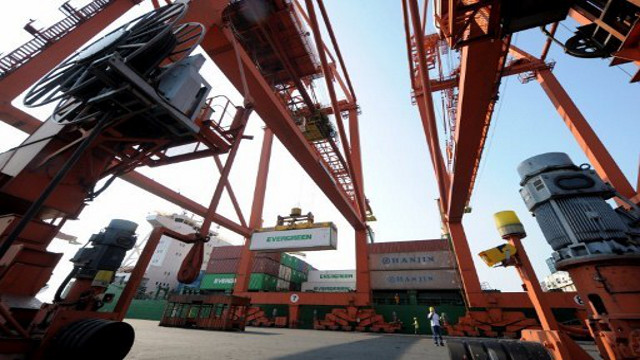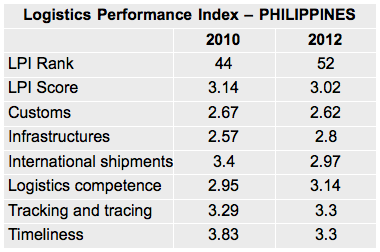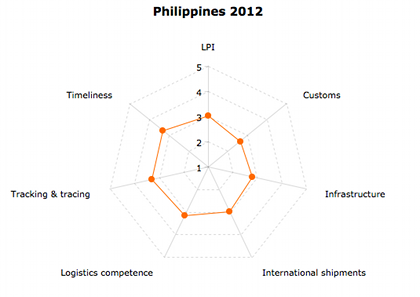SUMMARY
This is AI generated summarization, which may have errors. For context, always refer to the full article.

MANILA, Philippines – The country lags in its trade logistics performance for this year, according to a survey of international freight forwarders and express carriers.
The Philippines ranks 52nd out of 155 countries in the recent worldwide Logistics Performance Indicators (LPI) survey, which measure the capacity of countries to efficiently move goods and connect manufacturers and consumers with international markets.
The Philippines obtained an overall score of 3.02 in the survey. Scores given for each country range from 1 (worst) to 5 (best), with a higher score representing better performance in logistics.
The country drops 8 places from its 44th ranking in 2010, when it obtained a score of 3.14.
Singapore topped the 2011 ranking, obtaining a score of 4.13. This rich city-state also topped the 2007 ranking with its 4.19 score, and landed second in the 2010 ranking with a 4.09 score. Germany topped the 2010 ranking with its 4.11 score.
Compared to its scores in 2010, the Philippines performed lower in 2011 in 3 out of 6 categories in the survey.
The country ranked highest in ‘tracking and tracing’, and lowest in ‘timeliness’:
- Tracking and tracing – 39th
- Logistics competence – 40th
- International shipments – 56th
- Infrastructure – 63rd
- Customs – 68th
- Timeliness – 70th

A report attached to the survey, which was prepared by World Bank, noted that high-income economies dominate the logistics rankings, while the economies with the worst performance are least developed countries.
The report also noted that all top performers in the ranking were observed to have the following:
- strong public-private partnership and dialogue
- good cooperation between policymakers, practitioners, administrators and academics
- comprehensive approach in the development of transport services, infrastructure and efficient logistics
“Only by fostering cooperation between the public and private sectors, and by considering the impact of all agencies on the supply chain can a country create sustainable improvements in its logistical capabilities,” the study said.
Lower middle-income performers
The report indicated that “logistics performance is not simply determined by the level of per capita income, as many countries across different income groups have done better than their peers.”
In the case of the Philippines, it fared well compared to other similar lower middle-income economies. It ranks third only behind India (46th) and Morocco (50th).
The country, however, also declined in its ranking among lower middle-income performers. In 2010, the Philippines ranked first in this group.
Innovative approaches
Despite the low ranking of the Philippines this year, the survey highlighted the government’s implementation of a “national single window system for trade”.
The report described this system as an “innovative approach to border agency cooperation.”
This system, as explained in the report, automated some government agencies’ import and export permit and licensing requirements. Traders can access the system online for trading processes: first to submit and pay for permit applications, and then to track approval and clearance.
“Key performance indicators show that the system has reduced the time it takes traders to apply for various permits and licenses and be granted them,” said in the report – Rappler.com
Add a comment
How does this make you feel?
There are no comments yet. Add your comment to start the conversation.